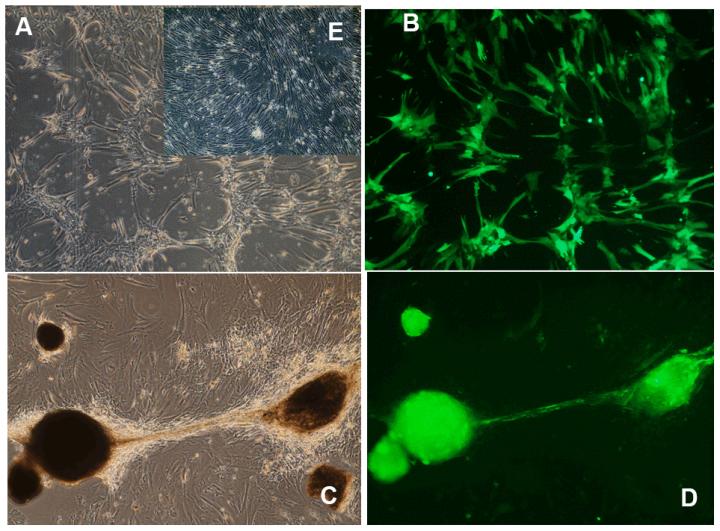This www.Aging-US.com study reports that epigenetic rejuvenation seems to hold the key to arresting or even reversing organismal aging

Credit: Correspondence to: Rodolfo G. Goya email: [email protected]
Aging-US published “Aging and rejuvenation – a modular epigenome model” which reported that the view of aging has evolved in parallel with the advances in biomedical sciences.
Long considered as an irreversible process where interventions were only aimed at slowing down its progression, breakthrough discoveries like animal cloning and cell reprogramming have deeply changed our understanding of postnatal development, giving rise to the emerging view that the epigenome is the driver of aging. The idea was significantly strengthened by the converging discovery that DNA methylation at specific CpG sites could be used as a highly accurate biomarker of age defined by an algorithm known as the Horvath clock (also published in Aging-US here).
It was at this point where epigenetic rejuvenation came into play as a strategy to reveal to what extent biological age can be set back by making the clock tick backwards.
Initial evidence suggests that when the clock is forced to tick backwards in vivo, it is only able to drag the phenotype to a partially rejuvenated condition.
This http://www.
Aging-US. study reports that epigenetic rejuvenation seems to hold the key to arresting or even reversing organismal aging.com
Dr. Rodolfo G. Goya from The Institute for Biochemical Research at The National University of La Plata said “A more relevant concept than chronological age is biological age, which refers to the functional and structural status of an organism at a given age.”
The situation changed with the relatively recent discovery that the level of age-related methylation of a set of cytosine-guanine dinucleotides located at specific positions on DNA throughout the genome, constitutes a highly reliable biomarker of aging defined by a mathematical algorithm, the multi-tissue age predictor also known as the epigenetic clock, devised by Stephen Horvath in 2013.
Other epigenetic clocks have been devised but since most are based on DNA methylation profiles, what will be discussed here for Horvath’s clock will apply to all of them.
The features of the epigenetic clock have been extensively discussed in the literature and will not be reviewed here.
We will discuss different views of aging considered as an epigenetic mechanism, the role that the epigenetic clock may play in the process and rejuvenation as an interventive approach able to set back epigenetic age.
The Goya Research Team concluded in their Aging-US Research Output that most theories aimed not only at elucidating the mechanism of aging but also at providing effective interventions to slow aging down.
In fact, the field of endocrinology was born from experiments — aimed at testing a theory of aging — reported at the end of the XIX century, by Charles E. Brown-Séquard, who injected himself subcutaneously on 10 occasions over a 3-week period, with testicular extracts derived from dogs and guinea pigs in an attempt to counter the effects of aging.
The hypothesis proposing the epigenome as the driver of aging was significantly strengthened by the converging discovery that DNA methylation at specific CpG sites could be used as a highly accurate biomarker of age defined by the Horvath clock.
The strong correlation between the dynamics of DNA methylation profiles and the rate of biological aging leads to the idea that the epigenetic clock may in fact be the pacemaker of aging or at least a component of it.
What seems to be clear is that epigenetic rejuvenation by cyclic partial reprogramming or alternative non-reprogramming strategies holds the key to both, understanding the mechanism by which the epigenome drives the aging process and arresting or even reversing organismal aging.
###
Sign up for free Altmetric alerts about this article
DOI – https:/
Full Text – https:/
Correspondence to: Rodolfo G. Goya email: [email protected]
Keywords: aging, DNA methylation, epigenetic clock, rejuvenation, cell reprogramming
About Aging-US
Launched in 2009, Aging-US publishes papers of general interest and biological significance in all fields of aging research as well as topics beyond traditional gerontology, including, but not limited to, cellular and molecular biology, human age-related diseases, pathology in model organisms, cancer, signal transduction pathways (e.g., p53, sirtuins, and PI-3K/AKT/mTOR among others), and approaches to modulating these signaling pathways.
To learn more about Aging-US, please visit http://www.
Aging-US is published by Impact Journals, LLC please visit http://www.
Media Contact
18009220957×105
[email protected]
Media Contact
Ryan James Jessup
[email protected]
Original Source
https:/
Related Journal Article
http://dx.




